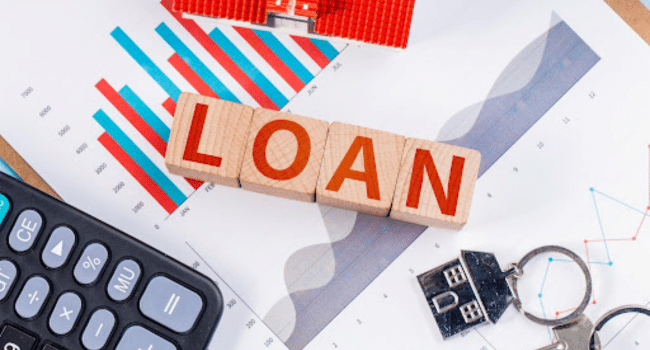Table of Contents
Small business loans play a vital role in the economy, providing much needed resources to entrepreneurs and helping to drive economic growth.
They are a key plank in a well-functioning economy – leading to job creation and community development.
Here’s a look at the impact of small business loans.
The Role of Small Businesses in the Economy
Statistics on small businesses in the economy reveal their substantial presence and impact.
According to the U.S. Small Business Administration (SBA), small businesses account for a significant portion of the economy. They make up over 99% of all businesses in the United States, employing about half of the private sector workforce.
These businesses span various industries, from retail and hospitality to technology and manufacturing. Their collective contributions form the backbone of the economy and contribute to its resilience.
Small business provides countless benefits to the economy, acting as vital job creators that provide millions of jobs. As they grow and expand, they create new positions.
They can also foster innovation and entrepreneurship by having the flexibility to test out new products and services.
Small Business Loans and Their Impact on the Economy
Small business loans have a significant impact on the economy, contributing to job creation, economic growth, and community development.
Small business loans play a vital role in job creation. By providing entrepreneurs and small business owners with the capital they need, these loans enable them to expand their operations, hire additional employees, and stimulate employment opportunities.
Small businesses are often the engine of job growth in economies, and access to loans empowers them to fuel employment growth and reduce unemployment rates.
The impact of small business loans extends to economic growth. When entrepreneurs and small business owners receive funding, they can invest in their ventures, leading to increased productivity, revenue generation, and economic expansion. By creating new markets, driving innovation, and fostering competition, small businesses, supported by loans, contribute to overall economic growth and prosperity.
Small business loans have a positive impact on community development.
Small businesses are deeply embedded in their local communities, and with access to loans, they can expand their operations, attract customers, and contribute to the vibrancy of the community.
The growth of small businesses fueled by loans can lead to improved community services, increased property values, and an enhanced quality of life for residents.
The Challenges of Obtaining Small Business Loans
Obtaining small business loans can be challenging for many entrepreneurs due to various factors that affect their ability to access funding.
One significant factor is the stringent requirements imposed by lenders, including stringent credit score criteria, collateral demands, and documentation burdens.
This can vary depending on the type of loan. In general, traditional lending options like bank loans have more stringent requirements and repayment terms.
The SBA offers a variety of loans for small businesses that offer more favorable repayment terms and require as little as 10 percent down. However, they also require excellent credit and are more onerous in terms of the application process.
Small businesses, especially startups or those with limited credit history, may struggle to meet these requirements, making it difficult to secure loans from traditional financial institutions.
The denial of small business loans can have significant repercussions for both individual businesses and the broader economy.
For small businesses, loan denials can stifle growth plans, limit investment in equipment or technology, and impede job creation.
On a larger scale, the impact of loan denials on small businesses can have ripple effects on the economy. Small businesses are essential drivers of economic growth, innovation, and job creation.
Strategies to Improve Small Business Loan Access
Improving small business loan access requires strategic measures and collaborations between various stakeholders. Governments can contribute to this goal by implementing initiatives such as loan guarantee programs that reduce lender risk and provide incentives for financial institutions to extend credit to small businesses.
Alternative financing options like crowdfunding, peer-to-peer lending, and microloans from non-profit organizations offer additional avenues for entrepreneurs to access capital outside traditional bank loans.
Financial institutions also play a crucial role in supporting small businesses by developing loan products tailored to their unique needs. Understanding the challenges faced by small businesses and considering factors beyond strict credit scores and collateral requirements can help financial institutions offer more accessible loans.
Case Study on the Impact of Small Business Loans
The SBA offers several success stories on its website, highlighting various business that have benefitted from its loan.
Neal Crosier started Popcorn Junkie in 2016 with his wife, aiming to provide gourmet popcorn flavors to Central Florida. He was able to use the Paycheck Protection Program and an Economic Injury Disaster Loan during the pandemic to stay open and is currently thriving.
Conclusion
Small business loans play a crucial role in the economy, providing vital support to entrepreneurs and driving economic growth.
These loans enable small businesses to access the capital they need to start, expand, and sustain their operations. By facilitating job creation, small business loans have a direct impact on employment rates and contribute to the overall economic well-being of communities.
Government initiatives, alternative financing options, and the support of financial institutions all contribute to improving access to small business loans.
However, challenges such as stringent eligibility criteria and loan denials can hinder small businesses’ ability to secure financing. Addressing these challenges and promoting greater accessibility to small business loans will further enhance their positive impact on the economy.
Small business loans are a catalyst for economic growth, job creation, and community development. By providing entrepreneurs with the necessary financial resources, small business loans foster a vibrant and resilient business landscape, supporting the success and prosperity of small businesses across various industries.
Read more on KulFiy
How to Use a Personal Loan for a Business Start-up?
